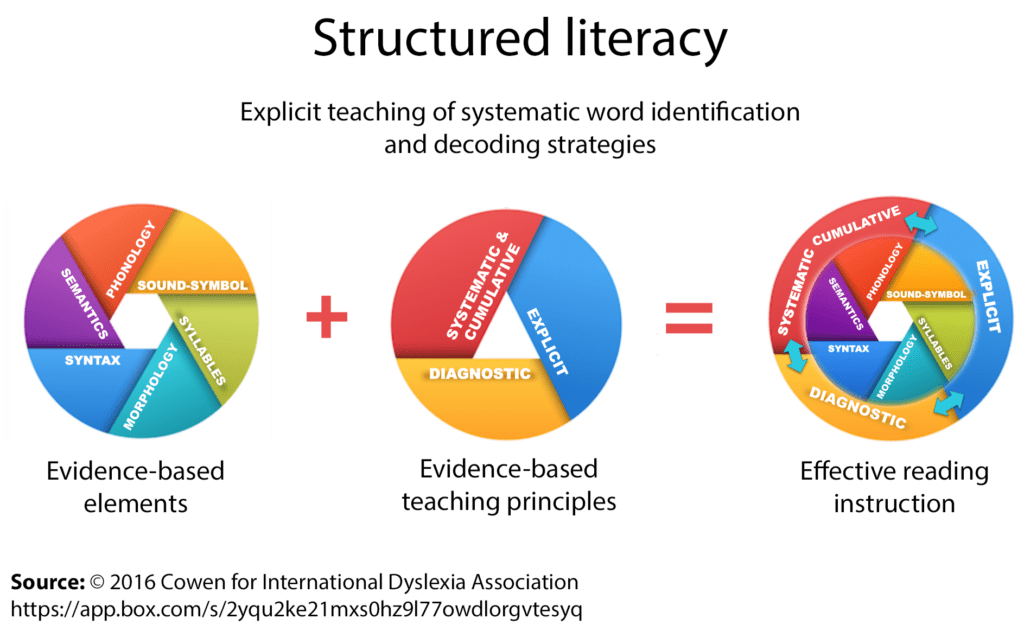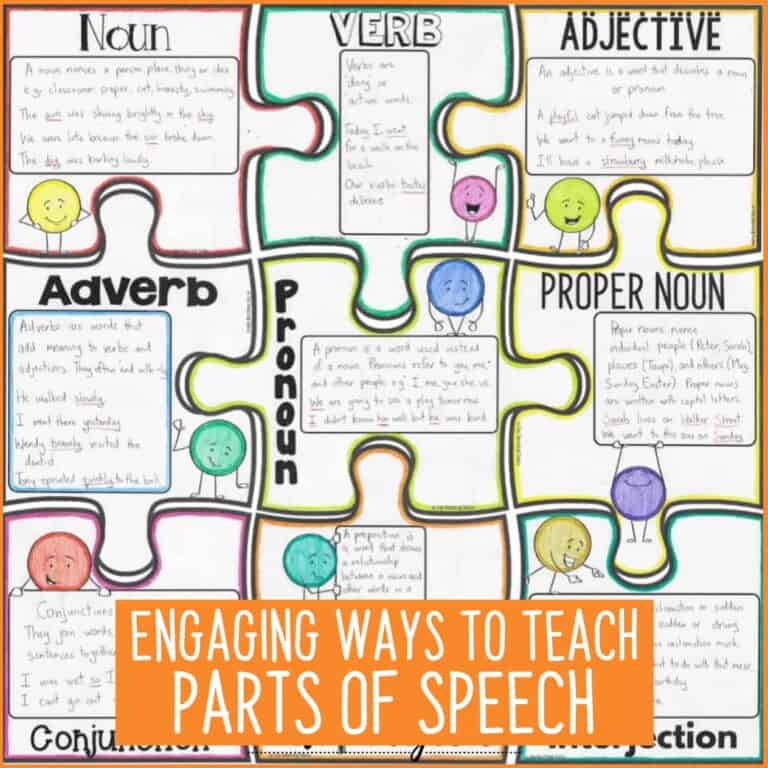The Power of Daily Literacy Reviews: Enhancing Memory, Retention, and Learning
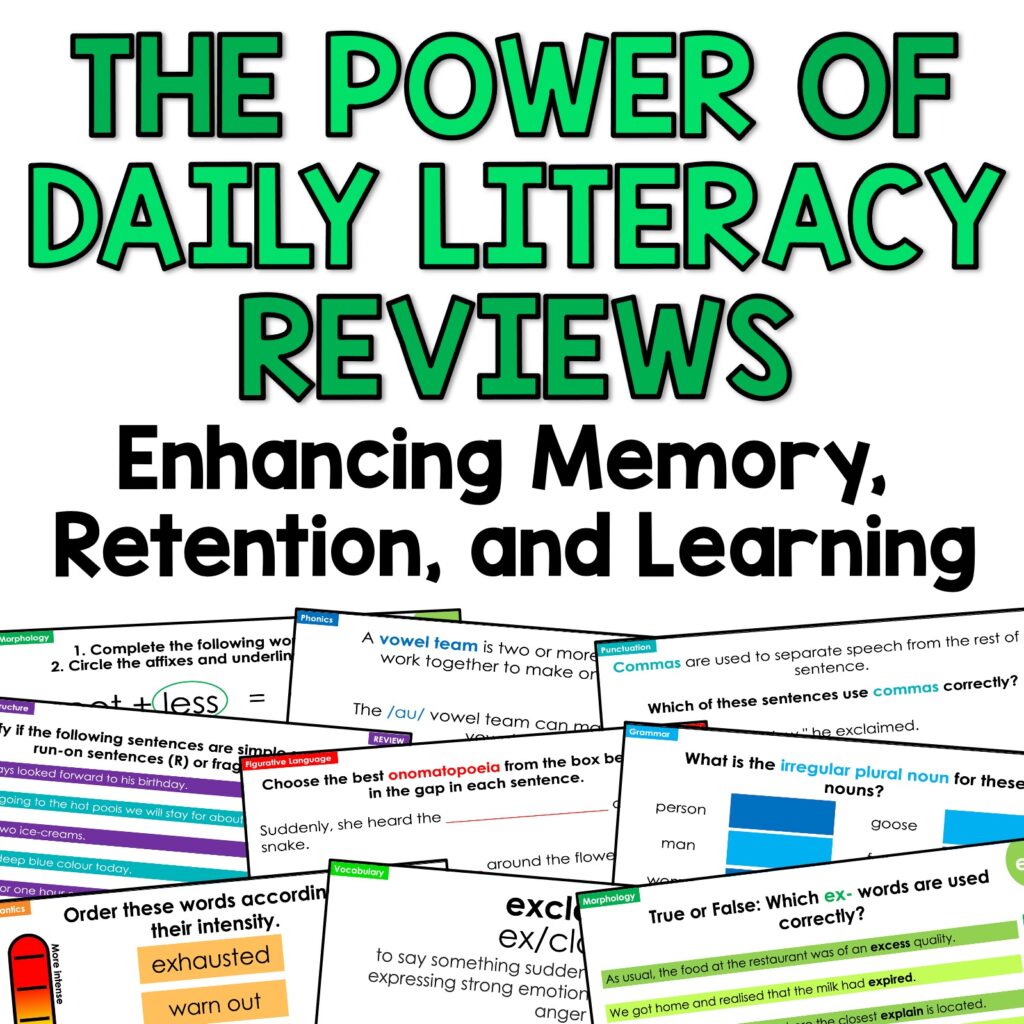
In the realm of education and cognitive science, the significance of revision and repetition in the learning process cannot be overstated. These fundamental strategies play a pivotal role in transferring information from short-term to long-term memory. One innovative method that incorporates these principles is the practice of daily literacy reviews.
Daily reviews, in the context of literacy, involve short, regular sessions designed to revisit and reinforce previously taught content. These sessions often take the form of PowerPoint presentations that cover a wide selection of skills and concepts in a randomised order. The deliberate removal and reintroduction of topics at regular intervals contribute to the effectiveness of this approach.
Why Daily Literacy Reviews?

- Spaced Practice: Daily reviews align with the principle of spaced practice, where studying a topic in regular intervals enhances retention more effectively than cramming. The spacing allows learners to engage with the material consistently, reinforcing their understanding over time. Read more about spaced practice here.
- Interleaved Practice: The interleaved practice within daily reviews involves studying various topics in short bursts. This approach is more effective than blocked practice, where learners focus solely on one topic. The diverse content keeps the mind engaged and promotes a holistic understanding. Read more about interleaved practice here.
- Retrieval Practice: The removal and reintroduction of topics during daily reviews contribute to retrieval practice. This practice makes memories more durable and flexible, enhancing the learner’s ability to recall information when needed. Read more about retrieval practice here.
- Find and Fill the Gaps: When regularly using review slides, teachers can identify gaps in knowledge that require reteaching or extra revision.
Features of OUR Daily Literacy Reviews:
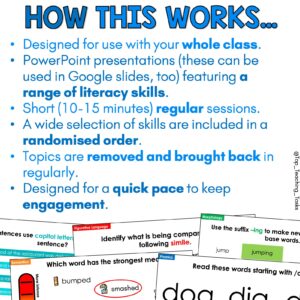
We have designed our daily literacy review slides:
- For use with your whole class.
- As PowerPoint presentations (these can be used in Google slides, too) featuring a range of literacy skills.
- For short (10-15 minutes) regular sessions – we provide nine weeks of four short and sharp sessions a week. We recommend using these at the beginning of your literacy block.
- With a wide selection of skills are included in a randomised order.
- To have a quick pace to keep engagement
- With variety front and centre. Topics are removed and brought back in regularly.
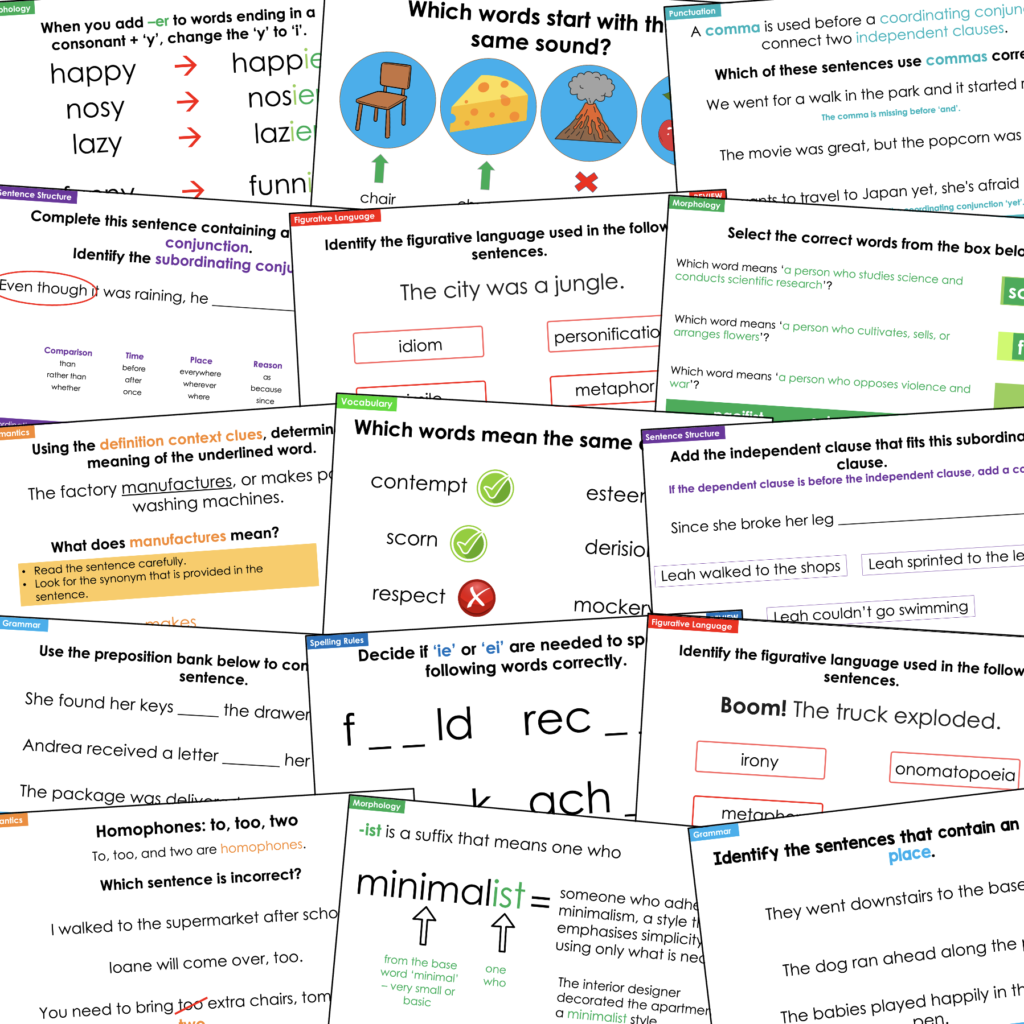
What elements do we cover in our Daily literacy review slides?
Our unique daily literacy reviews cover a wide range of literacy elements. Check out what we cover in the diagrams below!


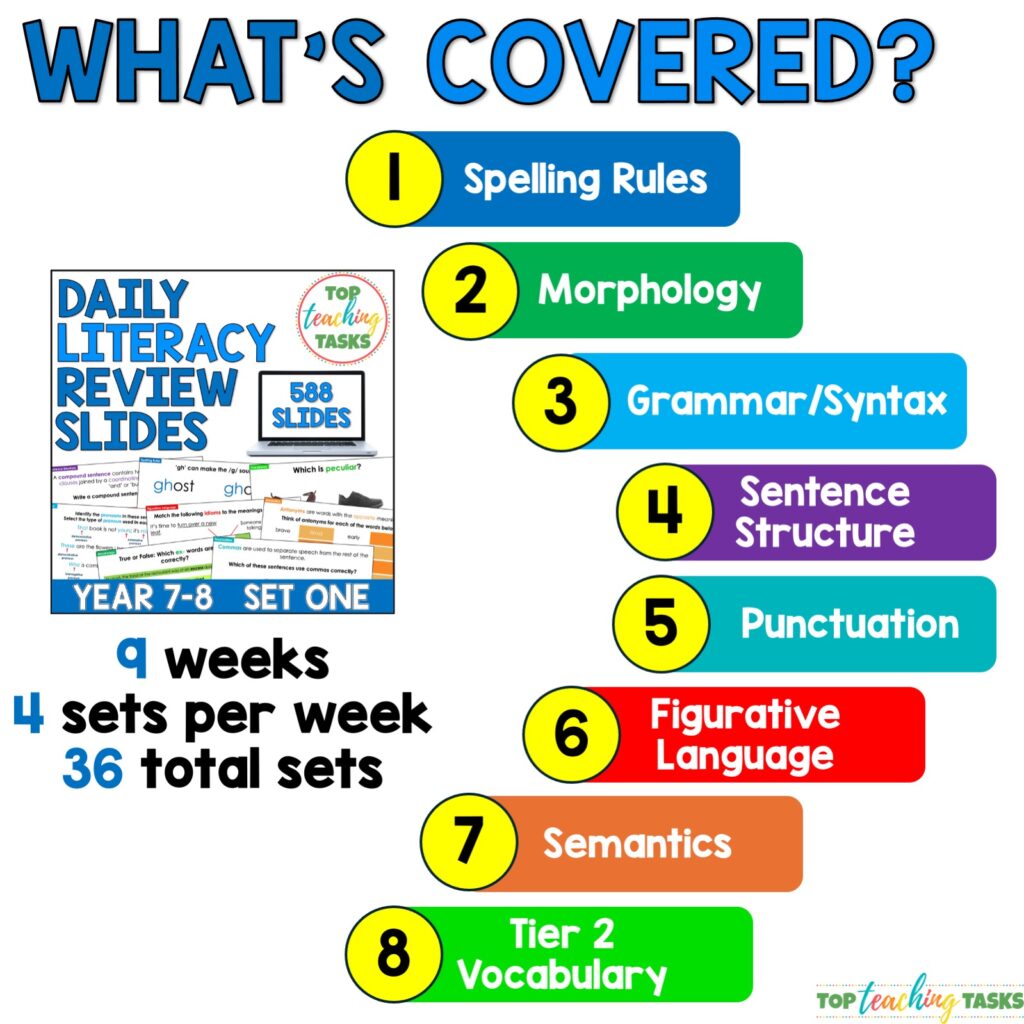
As you can see from the diagram below, phonology, morphology, syntax and semantics are all evIdence-based elements of structured literacy.
These activities will complement your structured literacy programme, and help you to systematically and regularly review literacy skills. They also align with the refreshed New Zealand English curriculum. As you can see from this diagram below (original graphic from The Reading League), the skills covered in our daily literacy reviews are essential to the teaching of language.

Not convinced? Let’s check out what the experts have to say:
- As the primary goals of reading and writing are determining and communicating meaning, it is important for students to understand the meanings of words and how words function in sentences (NICHD, 2000).
- As the majority of words in English have multiple meanings or shades of meaning, it is necessary for the reader to be flexible in determining the author’s intended meaning of a word within a sentence (Castles, Rastle, & Nation, 2018).
- The most effective way to teach vocabulary is to show how new words relate to other words, especially ones that students already know. It is important to explicitly teach the relationships between words. (Literacy Teaching Toolkit, 2021)
- Vocabulary knowledge is fundamental to reading comprehension; one cannot understand text without knowing what most of the words mean. A wealth of research has demonstrated the strength of the relationship between vocabulary and comprehension. (Nagy, 1988).
- Learning to recognise morphemes helps students to decode complex words more rapidly, to learn the meaning of words, and to spell them correctly (Such, 2021).
- A meta-analysis conducted by Bowers et al (2010) of 22 morphology studies found that morphology instruction benefits learners, especially less proficient readers.
- Carlisle (2010) analysed 16 studies about how morphological awareness contributes to students’ literacy development. The findings showed that morphological awareness has the potential to deepen students’ understanding of spelling and the meaning of written words.
- When students encounter new or unfamiliar words in a text, they can use their understanding of prefixes, suffixes and base words to decode the meaning of the whole word (Apel & Henbest, 2016).
- Morphological awareness is another tool in a student’s literacy knowledge tool-belt when they encounter new and challenging words (Goodwin, Lipsky, & Ahn, 2012).
To SUm UP:
Our Daily Literacy Reviews are a dynamic and effective tool for enhancing memory, retention, and learning. By incorporating principles of spaced practice, interleaved practice, and retrieval practice, daily reviews offer a comprehensive approach to reinforcing previously taught content.
Backed by research, our literacy reviews are a tool for boosting students’ reading comprehension, spelling proficiency, vocabulary, writing skills, and overall literacy development.
Our Daily Literacy Review Resources
Click below to check out set one of our Daily Literacy Resources for Year 1-3, Year 4-6, and Year 7-8. Each pack features nine weeks of daily literacy review slides – more than enough for a term’s worth of reviews! Keep an eye out for set three coming soon.

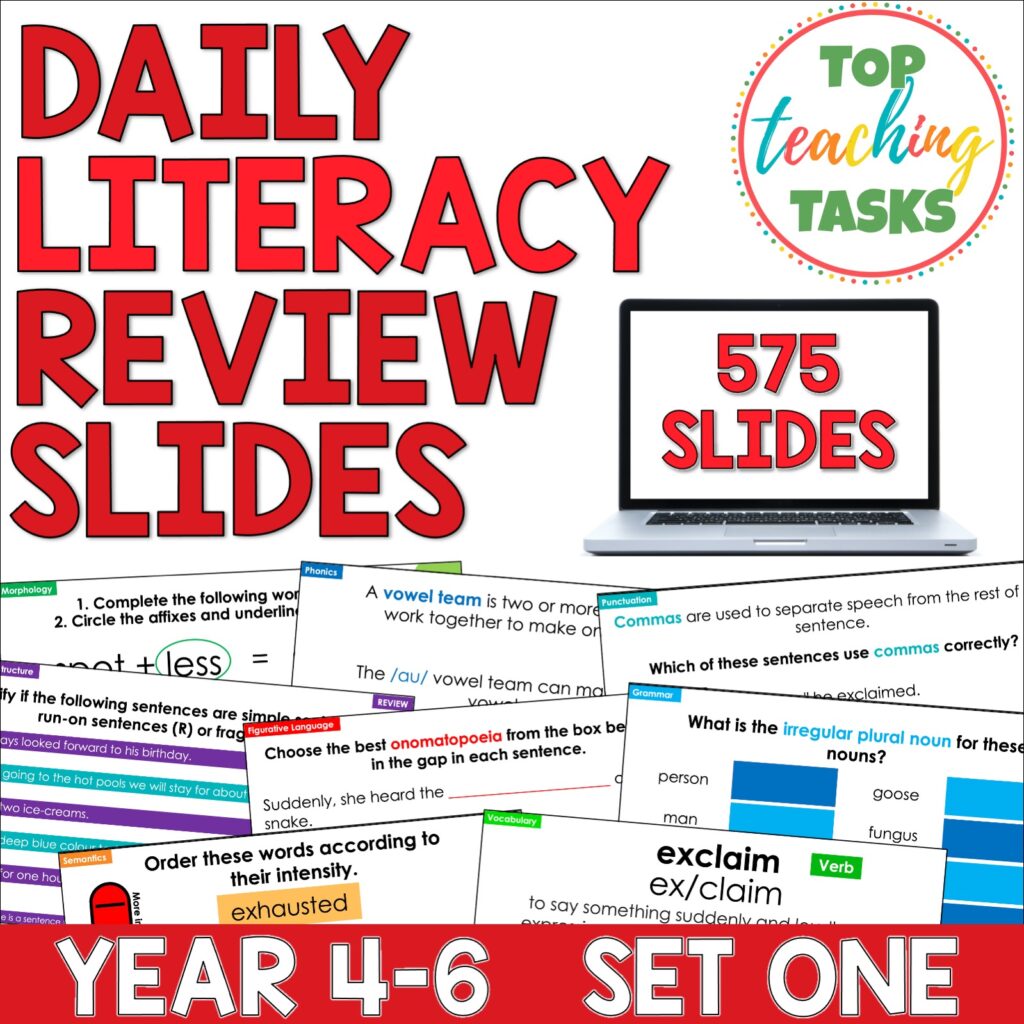
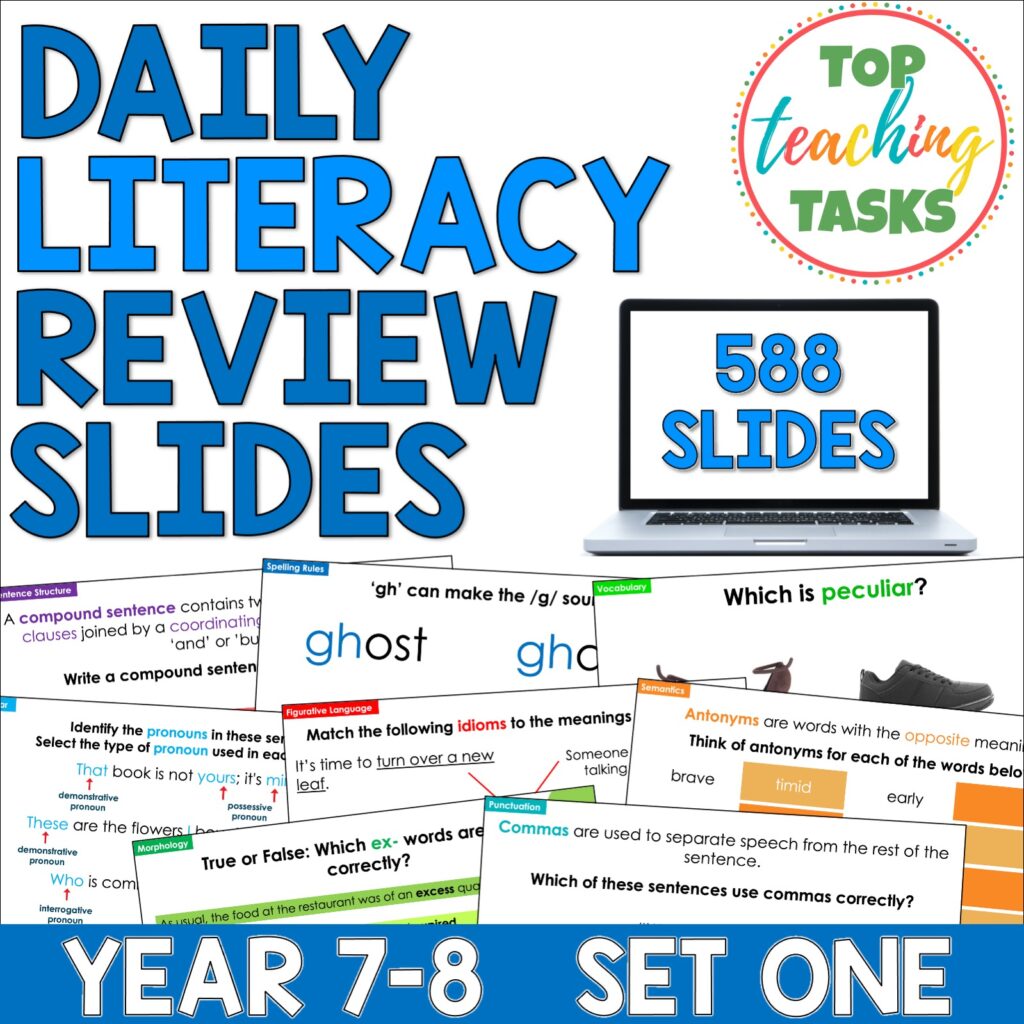



Did you say freebie?

Do you want to try a free sample of our Daily Literacy Review slides? Click the links below.
- Click here to access our Year 1-3 free sample.
- Click here to access our Year 4-6 free sample.
- Click here to access our Year 7-8 free sample.
Further Reading:
Spaced, Interleaved and Retrieval Practice: The Key to Long-term Knowledge Retention (LDA Webinar) – Youtube video by
David Morkunas. View this video here.
Rosenshine Masterclass IV Daily Weekly Monthly Review – Youtube video. View this video here.
Five Ways to do Daily Reviews: Tom Sherrington. Read more here.

